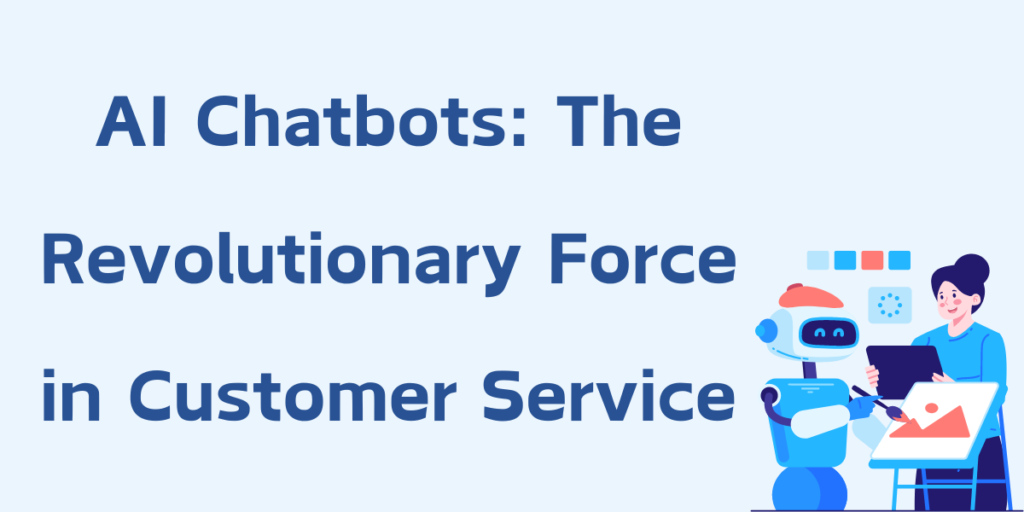Introduction
The rapid advancement of artificial intelligence has paved the way for transformative innovations in many industries, with customer service at the forefront. AI chatbots, driven by complex algorithms and machine learning capabilities, have become a powerful tool for businesses to engage with their customers. These virtual assistants can handle a wide range of tasks, from answering routine inquiries to solving complex problems, all while improving response times and efficiency. But beyond the technical prowess, AI chatbots represent a new paradigm in customer interaction, one that balances automation with a touch of human-like empathy.
What Are AI Chatbots?
AI chatbots are intelligent software applications designed to simulate conversations with human users. They rely on natural language processing (NLP) to understand and respond to text or voice inputs. These chatbots can be deployed across multiple platforms, including websites, social media, and messaging apps, providing real-time assistance. What distinguishes AI chatbots from traditional ones is their ability to learn and adapt, evolving with each interaction to offer more personalized and accurate responses over time. As AI technology advances, even in specialized areas such as NSFW AI, these bots are becoming more refined in understanding and responding to complex language patterns. They act as a bridge between human communication and automation, making customer service more efficient and accessible.
Why Are AI Chatbots Becoming Popular?
AI chatbots have gained popularity for several compelling reasons, reshaping the way businesses engage with their customers and streamline operations.
- 24/7 Availability: AI chatbots can operate around the clock, ensuring that customers can access support or services at any time, enhancing user satisfaction.
- Cost-Efficiency: By handling routine inquiries and tasks, businesses can reduce their customer service costs, allowing human agents to focus on more complex issues.
- Scalability: Chatbots can manage thousands of conversations simultaneously, offering an unparalleled ability to scale customer service operations during peak times.
- Personalization: AI chatbots can analyze customer data to provide tailored recommendations and responses, improving user experience by making interactions feel more personal.
- Multilingual Support: Many AI chatbots are equipped to converse in multiple languages, helping businesses reach a global audience more effectively.
This widespread adoption is not just a trend but a response to the growing demand for seamless, efficient, and accessible customer service solutions.
How AI Chatbots Improve Customer Experience?
The integration of AI chatbots into customer service systems is revolutionizing the way businesses interact with their clients. By offering instantaneous, accurate, and personalized responses, chatbots are elevating the customer experience to new heights.
24/7 Instant Support
One of the most significant ways AI chatbots enhance customer experience is by providing round-the-clock support. Unlike human agents bound by time zones or working hours, chatbots are available at any moment. This constant availability ensures that customers can resolve their concerns immediately, leading to higher satisfaction rates. Whether it’s a general customer query or something more specific like NSFW chat functionalities, the ability to get immediate answers, regardless of time or location, is invaluable.
Personalized Interactions
AI chatbots leverage data analytics and machine learning to tailor interactions based on individual preferences and past behaviors. This level of personalization fosters a sense of connection, as customers feel their needs are better understood and met. Instead of receiving generic responses, users are given solutions that are more in line with their unique inquiries. Over time, as chatbots continue to learn from these interactions, their ability to predict and address needs becomes more refined.
Seamless Multichannel Experience
In today’s interconnected world, customers expect consistent service across various channels. AI chatbots provide a seamless experience, whether the interaction occurs through social media, email, or a company’s website. They ensure that customers receive coherent and continuous support, regardless of where they choose to engage. This not only improves convenience but also reinforces a company’s brand by maintaining consistent quality across different platforms.
Benefits of Using AI Chatbots for Businesses
For businesses, the advantages of integrating AI chatbots into their customer service operations are vast. Not only do they enhance customer satisfaction, but they also offer significant improvements in efficiency and scalability. These tools, including applications like NSFW AI chat, provide an avenue for businesses to explore niche markets while maintaining high levels of professionalism.
- Increased Efficiency: AI chatbots can handle multiple conversations simultaneously, allowing businesses to manage higher volumes of customer inquiries without increasing staff.
- Cost Savings: By automating routine tasks, businesses can reduce the need for large customer support teams, translating to lower operational costs.
- Data-Driven Insights: Chatbots can collect valuable data on customer interactions, providing businesses with insights that help improve products, services, and customer service strategies.
- Consistency in Service: Unlike human agents, chatbots provide consistent responses, ensuring that all customers receive the same level of support.
- Enhanced Customer Engagement: By being available 24/7 and offering personalized recommendations, AI chatbots keep customers engaged and connected to the brand.
What Are the Challenges of Implementing AI Chatbots?
While AI chatbots offer significant advantages, their implementation is not without challenges. Businesses must navigate several obstacles to ensure a successful integration.
- High Initial Costs: The development and deployment of sophisticated AI chatbots require a substantial upfront investment, which may not be feasible for all businesses.
- Complexity in Setup: Designing chatbots to handle intricate conversations and providing them with the necessary training can be a complex process.
- Limited Understanding: Despite advancements in AI, chatbots can still struggle to understand nuanced human language, leading to occasional miscommunications.
- Privacy and Security Concerns: Since chatbots collect and process large amounts of customer data, ensuring that this information is secure is critical to maintaining trust.
- Dependence on Continuous Updates: AI chatbots need regular updates and training to stay relevant and effective, which requires ongoing resources and management.
Future Development of AI Chatbots
As AI technology continues to evolve, the future of chatbots looks incredibly promising. Future developments are likely to focus on creating even more human-like interactions, further improving their natural language processing capabilities. We can expect advancements in emotional intelligence, enabling chatbots to detect and respond to the emotional tone of a conversation, adding a new layer of empathy to customer service. Additionally, the integration of AI with other emerging technologies, such as the Internet of Things (IoT) and augmented reality (AR), could open up entirely new possibilities for how businesses interact with their customers through chatbots.
Conclusion
AI chatbots have undeniably transformed the customer service landscape, offering businesses a powerful tool to meet the growing demand for efficient, personalized, and round-the-clock support. Their ability to streamline operations while maintaining high levels of customer satisfaction makes them a revolutionary force in the industry. As technology continues to evolve, AI chatbots will undoubtedly play an even more prominent role in shaping the future of customer service, helping businesses provide faster, more reliable, and more personalized interactions than ever before.


